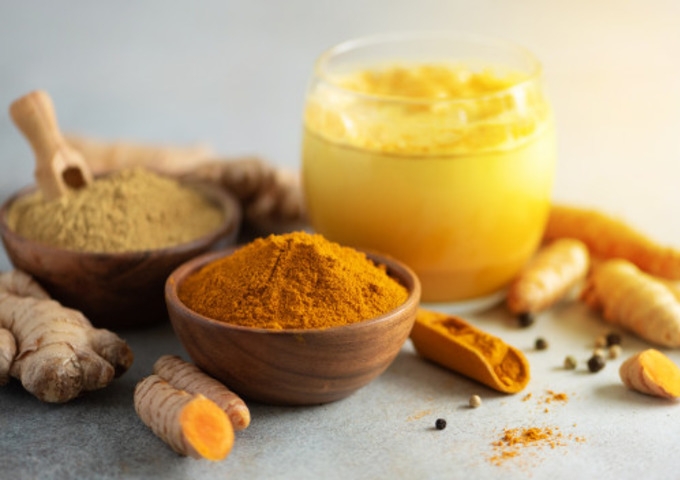The faster your metabolism, the more calories your body needs, which helps you to achieve healthy weight loss. However, our metabolism tends to slow down with age, which makes you gain weight easier than losing, in which your body has more leftover calories, which tends to be stored as fat. Fat, essentially stored at the abdominal area, organs and liver can increase the risk of getting chronic diseases such as heart diseases, hypertension and diabetes. The rate of metabolism varies from person to person, the most common factors of a reduced metabolism include the reduction of muscle mass, lack of physical activity and natural aging processes as a result of age. 5 Ways to Boost Your Metabolism 1. Eat adequately Starving yourself or have a heavily restricted diet can make you lose weight fast, but in the long-term, your metabolism tends to slow down due to calorie deficiency, which can cause you to regain the weight easily. To achieve a healthy and sustainable weight loss, eating enough is the key to boost your metabolism. 2. Eat enough protein Protein is one of the most essential macronutrients for the build, repair and maintenance of muscle tissue, which is crucial for you to maintain a high metabolism. Besides, eating enough protein also helps to temporarily increase your metabolic rate, known as thermic effect of food (TEF), in which the amount of calories burned for digesting and absorbing protein is higher compared to carbs and fat. Hence, consume enough high-quality protein such as dairy, eggs, chicken and fish to give your metabolism a boost. 3. Stay active All body movements, from standing, walking to doing chores requires energy or calories. The more active you are, the higher your metabolism. Hence, increase your physical activity and exercise regularly to help boost your metabolism for weight loss. 4. Resistance Training One study conducted among 50-60 years old men showed that, having resistance training or lifting weights at least 3 times per week helps to boost resting metabolic rate by 7.7% in 16 weeks. As muscle is more metabolically active than fat, having a higher lean body mass helps to increase metabolism. 5. Get enough sleep Not getting enough sleep affects your energy, concentration and health in general, including reducing your metabolic rate, which makes you gain weight more easily. One study has shown that healthy adults who slept for 4 hours for five consecutive days had average reduction of metabolic rate by 2.6%. Hence, ensure getting at least 8 hours of sleep per day is essential to maintain a high metabolism. Reference: Healthline
more


We all face stress in life. Common activities such as preparing for finals or giving a speech can cause some level of stress. Stressful situation can temporarily boost your bodily functions at first, but long-term stress such as those that are mental (anxiety) and physical (fatigue) can affect both mood and physical health, causing a range of health problems, espcially your immune system. In Malaysia, about 51% of the young people are stressed at work. Studies have shown that the negative effects stress can cause to our body include anxiety, fatigue, sore muscle and even health problems such as infections and chronic diseases. Five harmful effects of stress 1. Imbalance immune system- gets sick easily, higher risk of infection A balanced immune system protects you against health threat and diseases. However, long-term stress can cause high levels of cortisol, which can inhibit the function of immune system, causing the body to lose ability in defending you against pathogens, increasing the risk of infections, as well as worsen allergic reactions. Such an imbalance in the immune system can weaken your body’s defense against diseases. 2. Obesity Stress can cause the body to release high levels of cortisol, in which causes the body to release glucose into the bloodstream in order to supply quick energy. This can increase sugar cravings, causing you to overeat and gain weight. Studies have also found that high levels of cortisol can decrease your metabolism, which makes you difficult to lose weight and increase insulin levels, making you store fat more easily. 3. Mental disorders Long-term stress can affect your sleep as well as making you lose memory and focus. Mental disorders such as depression and anxiety are found to be closely-related to mental stress. Scientists found that high levels of cortisol can affect the brain’s functioning in terms of memory and emotion regulation. Long-term stress can reduce nerve cells and change the brain’s response to stress, increasing the risk of developing mental disorders. 4. Gut problems A balanced gut microbiota with higher amount of beneficial bacteria can ensure proper functioning of the digestive system. However, studies shown that stress can cause an imbalance in the gut microbiota, which can lead to gut problems such as constipation, bloating and indigestion, as well as increasing the risk of infections. 5. Cardiovascular diseases Studies suggest that high levels of cortisol from long-terms stress can increase blood cholesterol, blood sugar levels and blood pressure and promote atherosclerosis, increasing the risk of cardiovascular diseases. Reference: Healthline
more
Due to the pandemic, many people have started to work out at home. However, whether it is for health or to lose weight, diet plays a huge role in shedding those extra weights in combination with exercise. Apparently, pairing weight training with cardio is the best strategy for weight loss. Gaining lean muscle helps boosting your resting metabolism, which makes you burn more calories even when you’re sitting; and pairing it with at least 30 minutes of cardio exercises after, such as running, cycling helps you to effectively burn calories. However, exercising too much can lead to muscle fatigue, increasing the risk of injury and even causing production of free radicals in the body, in which when in excessive can damage our body cells and accelerate aging. Studies have shown that not only long-term oxidative stress can accelerate skin aging, these free radicals can also affect our immune system, leading to higher risk of infection. You are what you eat. Eating the right food before and after exercise not only helps to boost your workout performance, but to also help you to recover faster, loss weight effectively and prevent oxidative damage. Before workout: Eat enough carbs to improve performance Eat a 1:1 ratio of carbs, such as whole wheat bread, brown rice, fruits and vegetables and protein two hours before a workout helps your body to store energy and enhance performance in your workout by delaying fatigue. After workout: Eat enough carbs, protein and antioxidant-rich food Eating right after an exercise is the key to faster recovery and building lean muscle. Eating enough carbs such as sweet potato, fruits, oats and rice helps to stimulate insulin, which helps in increasing muscle protein synthesis, while consuming high protein food such as milk, yogurt, egg and fish after a workout helps in muscle-repair and growth. One is recommended to eat a 2:3 ratio of carbs and protein after a workout session. Exercising too much can cause the body to produce too much free radicals, which can cause aging. Hence, one should consume enough antioxidant-rich food, such as blueberries, apples, broccoli, spinach, onion and turmeric to fight free radicals and lower oxidative stress. Daily: Eat enough protein Consuming enough protein daily is the key to maintain lean muscle mass and resting metabolism. A lack of protein in the diet while you are trying to lose weight can cause muscle loss, which decreases metabolism and can make your weight rebound in the future. Hence, consume enough high-quality protein, such as animal source protein to maximize weight loss. For adults, a daily protein intake of 0.8g/kg body weight is recommended; while for those who are physically active, aim for a daily intake of 1.2-1.4g/kg body weight per day. Reference: Healthline
more
If you often have gut problems such as constipation, bloating and even flatulence (which by means, farting), you might have an imbalance in your gut microbiota. Your gut houses over 1000 types of beneficial and harmful bacteria, with the amount 10 times higher than your body cells. Studies have found that these gut bacteria can affect the functioning of the gut, immune system and even your mood! A healthy, balanced gut microbiota consists of a higher amount of beneficial bacteria, which ensures the well-functioning of the digestive system and forms a protection barrier on your intestinal muscosa, preventing harmful pathogens from invading and causing infections, as well as inhibiting their growth. Having a healthy immune system is the key to maintaining a balanced gut microbiota and overall health. However, having a weak immune system can often cause bacteria overgrowth in the gut, causing gut problems such as flatulence, constipation, bloating, stomach cramps, diarrhea and even indigestion; or worse, destroying and invading the intestinal mucosa, making us fall sick or cause food poisoning. Besides, lifestyle factors such as stress, lack of sleep, diet high in sugar, salt and fat, overconsumption of alcohol and overuse of antibiotics can also disrupt the balance of gut microbiota. How to improve your gut microbiota? 1. Eat more fiber-rich food Studies have found that high fiber food such as fruits, vegetables, beans, nuts and grains can promote the growth of beneficial Bifidobacteria and lead to a diverse microbiome, which is ideal for good gut health. Fiber, which cannot be digested by our bodies, can be digested by certain bacteria in the gut, which promote their growth. 2. Eat fermented foods Fermented foods such as yogurt, sauerkraut and kimchi are rich in beneficial Lactobacilli, which helps in reducing the amount of harmful gut bacteria. However, it is important to take note of the amount of sugar in yogurts, as long-term consumption of too much sugar can reduce the amount of beneficial bacteria in the gut and not to mention, can negatively impact your health. 3. Consume immunonutrition A health, balanced immune system is the key to maintaining a balanced gut microbiota. Consuming health food rich in specific IgA and IgG antibodies can directly help in reducing harmful gut bacteria, improving the amount and activity of beneficial bacteria and helps to boost your immunity, protecting your overall health. 4. Lower stress levels Stress in the long-term can seriously affect your mood and pose a threat to your health, which includes disrupting the balance of your gut microbiota. Try meditation, walking or exercising to de-stress and improve your mood. 5. Stay hydrated Our bodies require sufficient amount of water to function normally. Drinking plenty of water daily has been shown to be beneficial for the intestinal mucosa and promote gut microbiota health.
more
Need some energy boost? Despite drinking coffee, eating the right food not only nourishes your body with nutrients, but also effectively promote energy levels. Here’s five food that have been proven to help you boost your energy, keeping you productive throughout the day. 1. Eggs Eggs are packed with proteins, which not only fills you up, but also providing a steady and sustained energy throughout the day. Besides, the most abundant amino acids found in eggs- leucine, is known to stimulate energy production as well as increasing the break down of fat for energy. 2. Turmeric Originated from India, turmeric is widely used for thousands of years as traditional spice and herbs. Studies have found that the active ingredient found in turmeric- curcumin has antioxidants benefits, offers liver protection and helps to boost metabolism, giving you more energy. However, the amount of curcumin in turmeric is quite low (3-5%) with low bioavailability. Instead, choose curcumin that is high in purity and formulated with bioavailability enhancers (such as lecithin) for maximized absorption. 3. Brown rice Compared with white rice, brown rice is rich in fiber with a relatively lower glycemic index, which is great for stabilizing blood sugar and providing sustained energy throughout the day. Additionally, brown rice is also packed with manganese, a mineral that helps enzyme to break down carbohydrate and proteins to generate energy. 4. Leafy green vegetables Iron is an essential element for hemoglobin production, which helps to transport oxygen in the blood. A person with iron-deficiency tends to get tired easily. Leafy green vegetables such as spinach, broccoli and kale are great sources of iron as well as vitamin C, which helps to enhance iron absorption in your body. 5. Nuts Packed with protein, fiber and good fats, nuts such as almond, walnuts and cashews are great snacks for health and energy. Besides, nuts are also great sources of energy-producing nutrients, including vitamin B, vitamin E, manganese and iron, which helps to beat tiredness.
more
According to a study in Childhood Obesity in Malaysia, one in every four children is either overweight or obese, which is quite concerning. Most parents seem to be unaware of the health consequences childhood obese can bring. In addition to height, the number on the weighing scale is something parents should also not overlook while monitoring their children’s growth and development. ‘Letting your child eat whatever they want’ is the problem A balanced diet plays a vital role in the growth and development of children. However, children tend to be picky eaters, in which they would mostly prefer sweets, snacks and fast food rather than eating fruits and vegetables, which are important sources of nutrients. Such foods with ‘empty calorie’, which contain higher calorie with relatively low amount of nutrients greatly contribute to weight gain and malnutrition in children, which can affect their growth and development. Besides, parents can also play huge factor in childhood obese, as children tend to follow their parents’ eating habits. Children nowadays are more inactive In this modern era, urban people tends to eat more and move less. Today, children tend to watch tv and use electronic devices such as phones and computers more often, rather than playing outdoors and engage in physical activities. In addition to an imbalance diet, such physical inactivity can easily lead to weight gain in children. The complications of childhood obesity Overweight and obesity are major risk factors for many chronic diseases. 80% of overweight children are more likely to become overweight adults. Children who are obese are at increased risk for diseases such as heart disease, diabetes, hypertension and cancer compared to children with normal weight. Not to mention that an obese children has a greater risk of infection, allergies and asthma, as obese can cause an imbalance in the immune system. Is your child obese? Childhood overweight and obesity can be determined by measuring a child’s body mass index (BMI), using the formula BMI = weight (kg) / height (m2). According to World Health Organization (WHO), anyone with a BMI between 25 and 29.9 is considered overweight; and if 30 or higher, he/she is considered obese. However, children tend to have different body sizes and development rate at different ages. Childhood overweight or obesity can be determined based on the child’s age as shown in the table below. Age Overweight ﹙BMI≧﹚ Obese ﹙BMI≧﹚ Male Female Male Female 2 17.7 17.3 19 18.3 3 17.7 17.2 19.1 18.5 4 17.7 17.1 19.3 18.6 5 17.7 17.1 19.4 18.9 6 17.9 17.2 19.7 19.1 7 18.6 18 21.2 20.3 8 19.3 18.8 22 21 9 19.7 19.3 22.5 21.6 10 20.3 20.1 22.9 22.3 11 21 20.9 23.5 23.1 12 21.5 21.6 24.2 23.9 Source:Ministry of Health and Welfare (Taiwan) 3 key ways to help your child lose weight safely 1. Eat a balanced diet Change your child’s diet by increasing their intake of high fiber and nutrient-dense food, such as fruits, vegetables, grains and beans. Choose lean meat such as chicken, fish and dairy such as milk for protein, which is crucial for children’s growth and development. 2. Reduce intake of high-calorie food Choose nutrient dense and low-calorie snacks such as fruits, whole wheat bread, low fat and salt biscuits instead of high fat and calorie food such as sweets, desserts, processed and fried food. 3. Increase physical activity Engage in physical activity with your children. Indoor activities such as doing house chores, skipping ropes, stairs-climbing, simple cardio exercises or outdoor activities such as a walk at the park, playground activities and cycling are great ways to increase physical activity in children, as well as strengthening parent-child relationship.
more
When you are doing things you love, such as eating your favourite food or meeting someone you like, these happy hormones- known as dopamine, will be released in large amounts in the brain, making you feel good and rewarded. In contrary, low levels of dopamine can make you feel less motivated and enthusiastic. Dopamine levels are typically regulated within the nervous system, but there are some things we can do to naturally boost our dopamine levels. 5 Ways to Boost Your Dopamine Levels 1. Eat more protein Proteins are made up of building blocks called amino acids. Tyrosine, one of a type of amino acid plays a role in the production of dopamine. Studies have found that eating food high in tyrosine such as milk, yogurt, beans, fish and chicken can increase dopamine levels in the brain; while a diet low in tyrosine can lead to a reduction in dopamine levels. 2. Eat less saturated fat When in a bad mood, people tend to reach for snacks. However, a diet high in saturated fat, such as fried food, cakes, biscuits and animal fat may disrupt dopamine signalling in the brain. Choose to consume food rich in unsaturated fat instead, such as nuts and avocados to minimize dopamine disruption (not to mention that they are more heart-friendly). 3. Eat more antioxidant rich foods Dopamine is easily oxidized enzymatically. Eating food rich in antioxidants such as vegetables, fruits, onions, garlic and turmeric can protect dopamine from damage by oxidative stress. 4. Maintain gut health Gut is known as the ‘second brain’, as it contains large amount of nerve cells that produce neurotransmitter signalling molecules, including dopamine. Keeping your gut environment healthy and increasing probiotics in your gut may help to boost dopamine levels and improve mood. 5. Get enough sleep Dopamine levels tend to decrease naturally at night when we fall asleep and rise in large amounts in the morning, making us feel awake. However, lack of sleep can reduce dopamine levels, leading to reduced concentration and possibly bad mood. Hence, ensure adequate sleep of at least 8 hours a day is crucial in keeping dopamine levels balanced. Reference: Heho health Healthline
more
People nowadays can’t seem to find the time to exercise due to busy lifestyles. However, stretching is a great form of exercise as it can simply be done at home under ten minutes and is relatively less intense compared to outdoor exercises such as jogging, swimming and cycling. Not only can stretching help to relax your muscles, it can also improve posture, helps to improve back pain, relief stress and more. 6 Benefits of Stretching 1. Improves flexibility Regular stretching can help to increase flexibility, which not only allows you to perform everyday activities with relative ease, but also helps in maintaining balance, delaying reduced mobility caused by aging and reducing the risk of falling. 2. Improves blood circulation Stretching can help to improve blood circulation by allowing more blood to flow to your muscles. This helps to relieve muscle tension and stiffness, reduce muscle recovery time and even reduce muscle soreness. 3. Improves posture Long term poor sitting habits or repetitive motions can cause muscle imbalance, which can lead to poor posture. However, stretching a specific muscle groups helps to encourage proper alignment, which in turn help to reduce muscle imbalance and improve posture. 4. Helps to heal and prevent back pain Having tight muscles can lead to decreased range of motion, increasing the risk of straining your back muscles. Stretching can help to heal back pain by strengthening the muscles, prevent future back pain and reduce the risk of muscle strains. 5. Relieves stress Sometimes physical and emotional stress can tighten up your muscles. Try stretching the area of your body where you tend to hold your stress, such as your neck, shoulders and upper back. 6. Helps to reduce tension headaches Tension and stress headaches can seriously affect your daily life. Besides having a well-balanced diet, staying hydrated and having adequate rest, stretching may also help to relieve headaches. 6 Simple Stretching Exercises Hold each stretch for 30 seconds. It is normal to feel some tension while stretching your muscles; however, if the area you are stretching starts to hurt, back off the stretch until you don’t feel any discomfort. Reference: Healthline Heho Health
more
It is a popular belief that white meats (such as chicken, duck or fish) are better for cardiovascular health than red meats (such as pork, lamb or beef), as red meats generally have higher amount of saturated fats than white meats. Food with high saturated fat can raise the blood cholesterol levels, increasing the risk of cardiovascular diseases. Red meats and white meats have equal effects on blood cholesterol levels A recent study published in The American Journal of Clinical Nutrition has challenged these claims. This research study has found that surprisingly, consuming both types of meat raised blood cholesterol levels more than consuming the same amount of plant-based proteins. Regardless of the type of meat, their effects on blood cholesterol levels are the same given that the saturated fat levels are equivalent. Non-meat protein sources are the best for cholesterol levels According to Dr. Ronald Krauss, the senior author of the research team, the results indicated that restricting meat altogether, whether red or white meats is more advisable in lowering cholesterol, and that non-meat protein sources such as vegetables, dairy, legumes, nuts and toufu are the most beneficial for cholesterol levels. Reference: Science Daily: Red and white meats are equally bad for cholesterol
more







